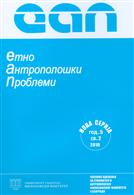Organization of Time in the Chinese Countryside: Labor, Rhythms and Gender in the Later Maoist Period (1958-1978)
Organization of Time in the Chinese Countryside: Labor, Rhythms and Gender in the Later Maoist Period (1958-1978)
Author(s): Vesna Vučinić NeškovićSubject(s): Agriculture, Government/Political systems, Cultural Anthropology / Ethnology, Economic development, Post-War period (1950 - 1989)
Published by: Филозофски факултет, Универзитет у Београду
Keywords: time; countryside; industrialization; work rhythms; Maoism; China;
Summary/Abstract: This paper deals with the question of how the state policies during the later Maoist period, from the beginning of the Great Leap Forward (1958) to the introduction of the Modernization Reforms (1978), affected the organization of time in the Chinese countryside. After abandoning the initial Soviet model of modernization, based on the exclusive strengthening of heavy industry, the China’s leadership developed a strategy of parallel development of agriculture and industry, wherein the former would additionally support the modernization of the latter. The study is focused on the ways the longer term state plans and shorter term economic, social and ideological policies and campaigns jointly influenced the rhythms of life of Chinese peasants. The domains in which these influences became visible were: (1) the intensification of agricultural practices, (2) the introducing of the small-scale industry, and (3) the politicizing of the spare time. In the analysis the characteristic rhythms of work and rest within the daily, weekly, seasonal, and annual time spans are followed in detail.
Journal: Етноантрополошки проблеми
- Issue Year: 5/2010
- Issue No: 2
- Page Range: 205-236
- Page Count: 32
- Language: English

